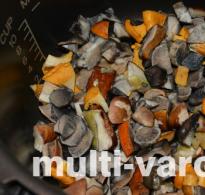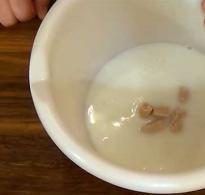Does coffee have a laxative effect? When coffee acts as a laxative.
It must be said that the laxative effect of coffee has already been proven by scientists, but it turns out that it does not manifest itself in all people. Therefore, there is still debate about whether coffee can actually act as a laxative for constipation.
It seems that everyone agrees that this drink with any additives causes a certain diuretic effect, but that’s why coffee acts as a laxative.
The main reasons why coffee makes you weak
If you are a true coffee lover, then you may have noticed that this drink can make you weak. But simply because of the characteristics of the body, coffee has a gentler effect on someone’s digestion, while in others it exhibits its properties more strongly. Moreover, studies have shown that there are people for whom coffee has no laxative effect at all.

However, it is not a myth that coffee acts as a laxative on the body. Because the drink is able to stimulate intestinal motility. That is, the small and large intestines are in good shape after drinking a cup of drink, which means that the contents of the intestines begin to actively move out.
Important! It turns out that the cause of the laxative effect of this drink is not caffeine at all. Coffee that contains no caffeine at all will act in the same way. The simple laxative effect is that the stool softens and it becomes easier for it to start moving out faster.
How to cook delicious coffee at home.
With milk or not?
Quite often you can read articles about how coffee makes you weak, but only in combination with milk. In fact, whether milk is added to this black drink or not does not matter at all. Because milk has its own effect on the functioning of the intestines and thus can act without coffee.

Diuretic effect
No one will argue that black coffee is a strong diuretic. If, as studies show, not all people feel the laxative effect of drinking coffee, then the diuretic effect almost always occurs. But here scientists emphasize that the diuretic effect does not appear from one cup.
This is exactly the property that this drink will have if you drink it from half a liter a day or more. It is important to understand here that the desire to go to the toilet will come with such an amount of coffee after a quarter of an hour and this is a natural need of the body. Moreover, if after drinking 500 ml cappuccino you don’t want to go to the toilet after 10-20 minutes, this is already a reason to worry: is everything working correctly in the body.
Coffee and weight loss
If we talk about laxative and diuretic effects, this leads some people to the conclusion that the drink helps to lose weight quickly. This is actually a misconception. If you understand how coffee works, then no person who cares about their health will drink too much of it. For example, coffee increases blood pressure, plus it speeds up metabolism.
Weight loss can occur due to these processes, which force the body to process energy reserves faster. But it is worth emphasizing here that for strong weight loss and to manifest this effect, you need to drink a lot of coffee, and this is dangerous for the body!
However, it should be separately emphasized that this drink contains vitamins and phenolic compounds that break down fat cells. These substances are effective not only when taken orally, but also when used externally. Because of this, coffee grounds are often used to make a scrub in the fight against cellulite, for example. Also, drinking a mug of coffee reduces appetite, and if you do not add milk and sugar, then the number of calories is reduced to a minimum.
In this material we thoroughly found out why coffee acts as a laxative and what to do to this effect feel. Remember that, depending on the individual characteristics of the human body, the laxative effect may not appear at all due to this drink, but the diuretic effect from a certain amount of this liquid must be required.
sdCoffee is a tonic drink whose popularity is steadily growing. Today there are many varieties and ways of consuming roasted coffee beans, but there is controversy among researchers regarding the impact on human body not finished. Thus, the question of whether coffee weakens or strengthens stool does not find a clear answer among fans of the invigorating drink.
When hitting digestive system coffee influences the intestines and their peristalsis. The frequency of contractions of its walls increases, the rhythm of pulsation accelerates, and the passage of contents through the sections of the digestive tract, including feces, is facilitated. However, this drink cannot be used as a method of treating dyskinesia (impaired peristalsis) and a number of other diseases of the digestive tract associated with the difficulty of bowel movements.
The effect the drink has on digestion can be traced through increased production of gastric juice (which is the main means of chemical processing), stimulation of metabolism, improvement of the functioning of the bile ducts, which helps to efficiently digest food and increase its digestibility.
One of the causes of constipation is stress. Drinking the “drink of vivacity” tones the body, the aroma helps to cope with tension, and as a result, the effect on the condition of the large intestine will manifest itself in facilitating the process of defecation. The above suggests that coffee weakens.
What type of coffee has a fixing effect?
It is important to consume the drink in limited quantities, optimally no more than 3 cups per day. The reason why coffee beans have a negative effect on stool is that the substance is a strong diuretic. Preference in this matter should be given to the Arabica variety rather than Robusta, because the latter contains twice as much caffeine and also has a specific taste.
Lack of fluid in the body is one of the factors that strengthen the stool: the stool becomes compacted, which makes it difficult to remove it - coffee strengthens it. This can be prevented by ensuring adequate drinking water intake.
Sweet coffee will strengthen the stool, since in this form it can cause intestinal spasms and complicate bowel movements.
Acorn coffee can fix stools. The substances that make up the drink have beneficial influence on the functioning of the digestive organs and can even help restore natural functions in case of disturbances. This type contains large quantities of starch (easily digestible, has a fixing effect), tannins (can prevent diarrhea and other symptoms of digestive tract disorders), quarcetin (helps relieve spasms and pain), the drink is rich in carbohydrates and proteins that saturate the body.

A drink made from acorns is considered a natural antibiotic, the purpose of which is to fight diarrhea and eliminate lesions on the intestinal walls. But diarrhea accompanied elevated temperature body, shortness of breath, vomiting and other symptoms of intestinal infection cannot be cured using this remedy. In the described case, a doctor’s consultation and a course of treatment are necessary, and not a traditional medicine.
Coffee as a laxative
Coffee acts as a laxative and will even be beneficial for the intestines in treating mild forms of constipation. Preference should be given to ground grains rather than the soluble equivalent, since the analogue contains preservatives, the effect of which cannot be called beneficial for the body.
A suitable solution would be a natural, unfiltered (or partially processed) version of the drink; it irritates the mucous walls of the intestines. Thanks to its composition and individual particles, the grounds have an “exfoliating” effect, activating work and facilitating the removal of feces. To avoid the opposite (fixing) effect, it is recommended to take a glass of water after a cup of an invigorating drink (after about 15 minutes). Additional fluid will help avoid difficulty in bowel movements, preventing dehydration.
Given the increased absorption of food after drinking coffee, it is preferable to drink it at the end of a meal. It is advisable to avoid drinking the drink on an empty stomach, as intensive production of gastric juice begins. Hydrochloric acid formed in advance makes it difficult to digest what you eat afterwards, and this threatens malfunctions gastrointestinal tract: abnormal stool, increased gas formation, etc.
Decaffeinated coffee - laxative effect
You can achieve a laxative effect from coffee by replacing the usual composition of coffee with its analogue, which does not contain caffeine. This choice will help solve problems with difficulty in emptying, since decaf has a weak diuretic effect.

Refusal of natural roasted grains is allowed either completely or as a temporary measure. The benefits of the purified version of the drink remain with moderate consumption: the same standards apply as for the natural one.
Coffee with milk as a laxative
Adding milk or cream will allow you to achieve a subtle taste and get rid of the bitter aftertaste, while intestinal function is facilitated and caffeine is partially absorbed, causing a laxative effect. Those who are lactose intolerant should use the drink in this form with caution. Adding both whole and skim milk can lead to deterioration of stool, pain and nausea.
The answer to the question whether coffee diluted with milk strengthens or weakens stool depends on the ratio of ingredients in the drink, as well as on the individual characteristics of the body. During diarrhea, a product with milk can aggravate the disorder, because milk particles cause a fermentation process.
The benefits of coffee as a laxative
Since coffee affects the speed at which food moves through the digestion process, people consider this drink a folk laxative. Gastrin stimulates the production of enzymes and bile, which speed up the processing of food. Cholecystokinin acts on the intestinal walls, causing increased peristalsis.
Laxative and fixative effects are individual, since each person has his own physiological characteristics and tolerance to individual food products. On the body healthy person coffee drink will have a mild laxative effect if used in moderation. The process of defecation may be complicated by symptoms of discomfort in some organs (stomach, intestines, etc.).
Compare coffee with medical device mistakenly, you should not use it as a medicine if you have symptoms of constipation. There is a slight laxative effect from the product, the effect is characterized as milder compared to other products that have the same effect (for example, apples), but individual intolerance and the appearance of side symptoms are not excluded. If there are symptoms of intestinal dysfunction (episodic or chronic), it is recommended to limit or exclude the drink from the daily diet.
Almost every second person in the world cannot live without aromatic and invigorating coffee. Caffeine, which is the main component of the drink, helps to wake up in the morning, get in the right mood for study or work, and also speed up natural process defecation. Next we will look in more detail important question: Does coffee make you stronger or weaker?
It has been established that coffee weakens. But this does not mean that a caffeinated drink can be used to treat constipation.
The coffee drink has the following effects on the digestive system:
- The drink has a gentle effect on the gastric mucosa, causing it to digest food more intensively. This is very useful, especially for congestion in the colon. In addition, active digestion allows you to absorb everything useful substances from food.
- Acceleration of bile secretion is observed through relaxation and expansion of the ducts. Ultimately, metabolic processes in the body improve.
- Gastric juice is actively produced, which also has a positive effect on food digestion. Food is broken down more intensively, and breakdown products are eliminated naturally.
- Coffee has a positive effect on the entire body. If problems with bowel movements arise due to stress, then a coffee drink will allow you to relax and restore normal digestive processes.
Coffee with milk is especially useful if you are not allergic to dairy products.
Drinking coffee for constipation
- No more than two servings of drink per day. Otherwise, problems may arise with other organs and systems.
- Be sure to take a short break between meals and coffee. This will avoid intensive production of hydrochloric acid, which negatively affects the gastric mucosa. This rule is especially important for serious stomach diseases such as ulcers. The food will be completely digested, and the coffee drink will speed up the natural elimination of feces.
- It is recommended to increase your fluid intake throughout the day, especially after coffee. This will prevent stool from hardening in the colon.
- It's best to drink only natural coffee no filtering. Small particles entering the intestines stimulate its work.
- Proper nutrition is also very important factor to restore stable functioning of the digestive system.
In some cases, coffee helps strengthen the intestines. This concerns strong drinks and exceeding the permissible daily value. Therefore, it is better not to overindulge in caffeinated drinks to avoid digestive problems in the future.

Contraindications
Coffee and constipation automatically become interrelated phenomena if possible contraindications are not taken into account.
- Serious gastric ulcers.
- Chronic high blood pressure.
- Diseases of the nervous and cardiovascular system.
- The period of pregnancy and lactation.
To avoid insomnia, you should drink coffee only in the first half of the day. You definitely need to review your daily diet, include more fiber and fluid to eliminate fecal stagnation in the colon.
Properly brewed high-quality coffee will bring a lot of incredible pleasure, as well as benefits for important organs and systems. Therefore, you need to be responsible when choosing a drink and follow all the rules for its preparation. In addition, you should not abuse it. For an adult, two servings of coffee a day are enough to feel normal.
Why does coffee cause constipation?
You also need to know that coffee beans have diuretic properties. In other words, coffee leads to the removal of fluid from the body. This is why stool hardens in the colon. To avoid stagnation, be sure to drink a lot during the day.
Digestive problems are observed in coffee drinkers who exceed permissible norm drinking the drink. The intestines become exhausted and cannot cope with the digestion of food, which leads to hardening of the stool.
Is it possible to drink coffee at all if it makes you constipated?
If you prepare the drink correctly, it will not harm the digestive processes. Coffee in reasonable quantities does not cure or cause constipation. Exceeding recommended doses leads to dehydration, so it is better not to overuse and monitor your drinking regime.
It is best to drink weak coffee with milk if you are not allergic to lactose. If there are no contraindications, then you can safely enjoy this aromatic drink.
Coffee does magical things. This drink wakes up, invigorates and makes people happy. But if you drink coffee every day, you've probably noticed something strange: your favorite latte has a laxative effect. However, it is still not known for certain why this happens.
Based on a sociological survey
Back in 1990, scientists conducted a small sociological survey on this topic. As a result, 29 percent of respondents said that they felt the urge to defecate immediately after drinking a cup. There were people who noted activity in the distal colon no later than half an hour after breakfast. Some scientists believe that the urge to pee every morning may not be related to caffeine at all. 
Gastrocolic reflex
Probably, after a long sleep and lack of work as such, with the onset of morning the gastrointestinal tract begins to become more active. When food or drink enters an empty stomach, the gastrocolic reflex is provoked. In fact, the stomach, having received a portion of aromatic latte, gives a signal to the intestines: it’s time to make room, because a new day has begun. 
However, some people may not experience anything like this. Experts link this to less susceptibility to intestinal disorders. In other words, if your stomach is too sensitive to different products, then most likely you will feel the urge to go to the toilet after drinking a cup of coffee with milk. 
One of the most common drinks is coffee. It generates near itself large number prejudices and myths. Some consider it extremely dangerous for the body, while others, on the contrary, extremely useful. How does coffee affect human health?
The effects of coffee on human health
Scientists are constantly studying how coffee affects human health. The natural ingredients it contains make it, according to most, very useful. With moderate consumption of this drink, according to researchers, no negative impact on the body. It is quite common and scientifically proven that coffee stimulates attention and helps restore lost energy.
In addition, it is more common in the literature that regular use coffee is a prevention of dangerous diseases ( diabetes mellitus type 2, liver cancer and cirrhosis, Parkinson's and Alzheimer's diseases). This invigorating drink also has a beneficial effect on the chest organs. Coffee contains a large amount of antioxidants, which slow down diseases associated with the aging process and improve overall health.
Coffee and the digestive tract
An aromatic drink drunk in the morning before breakfast causes the production of hydrochloric acid, which should be formed in the stomach only during the digestion of food. When gastric juice is produced in advance, it becomes more difficult for the body to digest large amounts of food. Remains of undigested food contribute to disruption of the gastrointestinal tract, which is expressed by increased gas formation, stool disturbances and other unpleasant symptoms.
Coffee in large quantities may irritate the walls of the small intestine, which may lead to abdominal pain, constipation or diarrhea.
Can coffee be used for diarrhea?
First, it is important to know what elements coffee includes. These include:
- Caffeine activates the central nervous system, gives a boost of energy;
- Nicotinic acid saturates with B vitamins, which are involved in metabolic processes;
- Trigonelline produces coffee aroma;
- Microelements (calcium, potassium, magnesium) stimulate mental activity.
In the body of a healthy person, coffee performs a large number of positive functions (accelerates metabolism, saturates with amino acids). And when the body has a bowel disorder caused by diarrhea, drinking coffee can only worsen the diarrhea, as it irritates the intestinal walls.
- increased heart rate and blood pressure;
- manifestations of swelling;
- headaches.
Coffee with milk during diarrhea can worsen gastrointestinal upset. Particles of milk that were unable to completely process the enzymes contained in the gastric juice negatively affect the intestines, provoking the processes of fermentation and rotting.
What type of coffee has a fixing effect?
There is a type of coffee made from acorns that strengthens. Unlike common species coffee: Arabica or Robusta – acorn coffee, much more useful. The elements included in this drink have positive influence on the functioning of the entire digestive tract, restoring its natural functions.
What substances are found in coffee made from acorns:
- More than half of the mass of coffee is occupied by starch, which has a fixing effect and envelops the walls of the digestive tract. Despite its significant content, it is easily digestible, without straining the pancreas;
- Quercetin relieves pain and spasm;
- Proteins and carbohydrates saturate the body;
- Tannins have a positive effect on the course of diarrhea, having a fixing property.
In addition, acorn coffee is a natural antibiotic. It actively resists intestinal infections, without the use of antibacterial therapy. Coffee made from acorns coats the intestinal walls and eliminates lesions, which allows you to actively fight diarrhea.
Despite the balanced composition, of this drink there are contraindications:
- Children are not recommended to use traditional medicine;
- The presence of blood or mucus in the stool, as this is considered a serious intestinal infection, the treatment of which is carried out under medical supervision;
- If diarrhea is accompanied by fever, vomiting, dizziness, shortness of breath.
How to use acorn coffee
You can buy this product at pharmacies, or prepare it manually. For self-collection, the period from the end of September to the beginning of October, when the acorns are ripe, is suitable. The collected fruits are washed well, after which they must be placed on a baking sheet in a small layer and placed in a preheated oven for 10 minutes. Next, the acorns are shelled and driven through a meat grinder. Then they are ground in a coffee grinder to the consistency of flour.
To prepare the drink, take half a teaspoon of acorn flour, add 200 ml of water, and bring the resulting mixture to a boil. low heat. Then leave for about 15 minutes. The finished drink is divided into three doses and taken orally before meals.
Can coffee be used as a laxative?
The drink in question, based on scientific research, can help treat constipation, which occurs in mild form. A significant role here is given to the cause of bowel dysfunction. Since there are cases when constipation is caused by a lack of fluid, in this situation coffee will only worsen the situation, since it removes fluid from the body.
The laxative effect of coffee does not affect all people. Intervention in the process of defecation is sometimes accompanied by discomfort (heaviness, bloating), but eventually the feces will be excreted.
Surveys conducted among people who regularly drink coffee showed that when drinking the drink for a long time, a laxative effect is observed. Coffee has a mild effect, unlike other foods (for example: apples, cabbage) or medicines.
Some tips on how to drink coffee when constipated:
- Limit drink consumption to two cups per day;
- In the absence of stool, drink coffee after meals, as this promotes intensive absorption of food;
- After drinking a cup of coffee, it is recommended to drink a glass of water, since coffee has a diuretic effect, which makes defecation difficult, so an additional source of liquid is needed;
- To eliminate constipation, only natural coffee is suitable, which does not need to be filtered to remove small particles, because they affect the intestinal mucous membranes, activating its work;
- In case of regular and chronic stool disorders, the drink should be excluded from the daily diet.
Does coffee make you stronger or weaker?
One of current issues is: does coffee weaken or strengthen? The laxative effect caused by coffee has been proven by studies, but it is worth noting that it does not apply to all people. Coffee can act as a laxative, as it activates the movement of food through the digestive tract. An invigorating drink produces hormones in the body: gastrin and cholecystokinin, which regulate digestive processes. The first hormone stimulates the production of bile and substances responsible for digesting food - enzymes. The second acts on the intestinal walls, improving its peristalsis.
Some lovers of an invigorating drink, for whom it is necessarily included in daily menu, have noticed that coffee can weaken you. Why does this apply to some drink fans? It depends on the physiological characteristics of each person. Among coffee connoisseurs, there are those who do not see any laxative effect from the drink.
And for the rest of the lovers, coffee fixes the chair. The drink has a diuretic effect, negatively affecting the contents of the intestines, reducing its volume. As a result, the intestines do not receive signals to empty.
The laxative and fixative effect of coffee is a strictly individual feature. However, analog plain coffee– coffee made from acorns has a beneficial effect on intestinal activity and has antidiarrheal properties.






